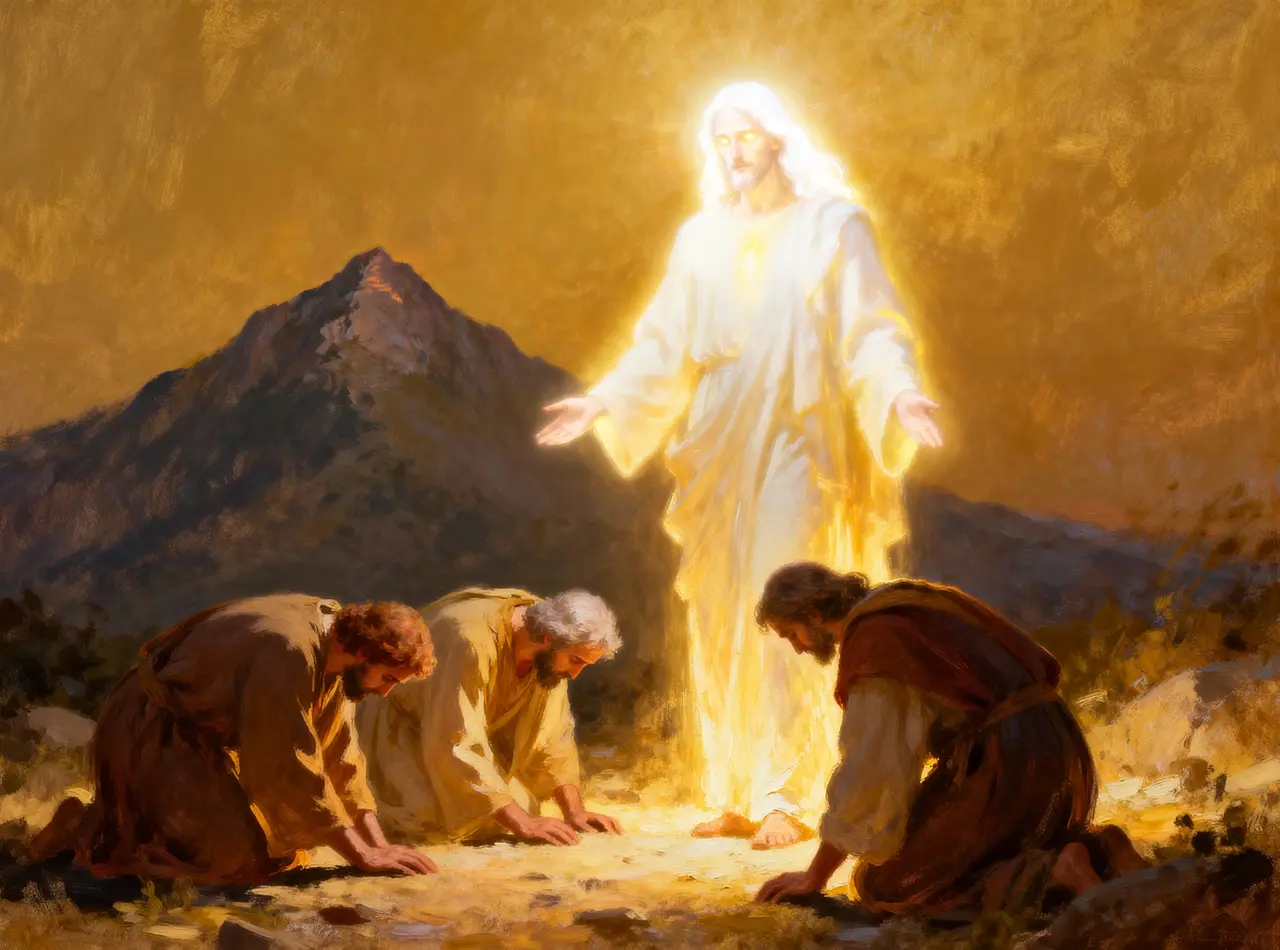Who Was Jesus?
This question stands at the very heart of the Christian faith. While many acknowledge him as a great moral teacher or a prophet, the Bible consistently makes a far more profound and staggering claim: that Yeshua (English: “Jesus”) the Messiah is deity. He is divine in the highest order because he is the exact representation of the transcendent Elohiym, in human form.
This isn’t a doctrine built on one or two ambiguous verses. Instead, the testimony to the Messiah’s divinity is woven throughout the entire scriptural narrative, from mysterious passages in the Tanakh to the explicit declarations of the Brit (New Testament).
This article is not about the Trinity doctrine, and it does not take a position regarding that doctrine. The point here is to establish that Yeshua is no mere man or prophet, but actually of the same divine essence as his Heavenly Father. In fact, they are so closely related that they share the same name (a “family name,” if you will), Yahweh. This does not necessarily imply that one must accept the Trinity doctrine or view the Holy Spirit as a third person of “the Godhead.” We leave it to each reader to embrace or reject Trinity theology as he or she sees fit. However, it is of utmost importance that we not find ourselves at odds with the teaching of the New Testament on the divine nature of the Anointed One.

Verses Presenting Dual Yahwehs
Zechariah 3:2
Yahweh said to Satan, “Yahweh rebuke you, Satan! Yes, Yahweh who has chosen Jerusalem rebuke you!”
Genesis 19:24
Then Yahweh rained on Sodom and on Gomorrah sulfur and fire from Yahweh out of the sky.
Jeremiah 51:19-23
Yahweh will use Yahweh Tseva’ot as his weapon of war to break in pieces the kingdoms and people who are against him.
Yeshua's Statements About Himself
John 8:58
Yeshua said to them, “Truly, truly, I say to you, before Abraham was born, I am.”
Context: The phrase “I Am” (‘Ego Eimi’ in Greek) is the Greek translation of the Divine Name revealed to Moses at the burning bush (Exodus 3:14). The Jewish leaders immediately reacted by picking up stones to stone Yeshua for blasphemy, showing they understood this as a claim to deity.
John 10:30
“I and the Father are one.”
Context: The crowd reacted exactly as they did in John 8:58, saying, “It is not for a good work that we stone you, but for blasphemy; because you, being a man, make yourself God” (John 10:33).
Mark 2:5-7:
Yeshua said to the paralytic, “Son, your sins are forgiven.” But some of the scribes were sitting there, questioning in their hearts, “Why does this man speak like that? He is blaspheming! Who can forgive sins but God alone?”
- Context: Yeshua not only claimed the authority to forgive sins, which is the prerogative of God alone, but he then performed a miracle to prove his authority to do so.
Revelation 1:17-18:
When I saw him, I fell at his feet as though dead. But he laid his right hand on me, saying, “Fear not, I am the first and the last, and the living one. I was dead, and behold, I am alive forevermore, and I have the keys of Death and Hades.”
Context: Yeshua here claims the title “the First and the Last,” a title that God declares belongs exclusively to Him in Isaiah 44:6.
Testimonies of Yeshua's Deity
John 1:1, 14:
In the beginning was the Word, and the Word was with God, and the Word was God…. And the Word became flesh and dwelt among us, and we have seen his glory, glory as of the only Son from the Father, full of grace and truth.
Context: This identifies Yeshua (“the Word”) as God himself, co-eternal with the Father, and yet also the one who became human.
John 1:18:
No one has ever seen God; the only God, who is at the Father’s side, he has made him known.
Context: The Greek phrase translated as “the only God” is **monogeneˉs theos**. Monogeneˉs is usually translated as “only begotten” or “only-born/unique.” Theos means “God.” The fact that the earliest and best manuscripts of the New Testament have **theos** (“God”) and not **huios** (“Son”) makes this a direct identification of Yeshua as “God,” rather than just “the only Son.” This title emphasizes His unique divine nature and relationship with the Father.
Colossians 1:16-17:
…for in him all things were created, in heaven and on earth, visible and invisible, whether thrones or dominions or rulers or authorities—all things were created through him and for him. And he is before all things, and in him all things hold together.
Context: This passage assigns the exclusive work of creation and sustainment (attributes of God alone) to Yeshua.
Ephesians 3:9:
…to make all men see what is the administration of the mystery which for ages has been hidden in God, who created all things through Yeshua the Messiah.
Hebrews 1:8:
But of the Son he says, “Your throne, O God, is forever and ever, the scepter of uprightness is the scepter of your kingdom.”
Context: The Father Himself addresses the Son as “Elohiym [God]” using a quotation from Psalm 45:6.
Matthew 1:22-23:
“Behold, the virgin shall be with child, and shall give birth to a son. They shall call his name Immanuel;” which is, being interpreted, “God with us.”
Isaiah 9:6:
For to us a child is born, to us a son is given; and the government shall be upon his shoulder, and his name shall be called Wonderful Counselor, Mighty God, Everlasting Father, Prince of Peace.
Context: This Messianic prophecy calls the future ruler “Mighty God” (‘El Gibbor’).
Titus 2:13:
…waiting for our blessed hope, the appearing of the glory of our great God and Savior Yeshua the Messiah…
Context: In the Greek text, the grammatical structure (“the great God and Savior”) strongly indicates that “God” and “Savior Jesus Christ” refer to the same person.
Yeshua Receives Worship
Revelation 5:13-14:
I heard every created thing which is in heaven, on the earth, under the earth, on the sea, and everything in them, saying, “To him who sits on the throne, and to the Lamb be the blessing, the honor, the glory, and the dominion, forever and ever! Amen!” The four living creatures said, “Amen!” Then the elders fell down and worshiped.
Context: Both the Eternal Father on the heavenly throne and the Lamb who is with Him are here the objects of praise and worship by every pious creature in the cosmos.
John 20:28:
Thomas answered and said to him, “My Lord and my God!”
Context: This is a direct address to the resurrected Yeshua, whom Thomas had just seen. Yeshua accepted this worship and title without rebuke, which would be blasphemy if Yeshua were merely a man.
Hebrews 1:5-6:
For to which of the angels did God ever say, “You are my Son, today I have begotten you”? Or again, “I will be to him a father, and he shall be to me a son”? And again, when He brings the firstborn into the world, he says, “Let all God’s angels worship him.”

